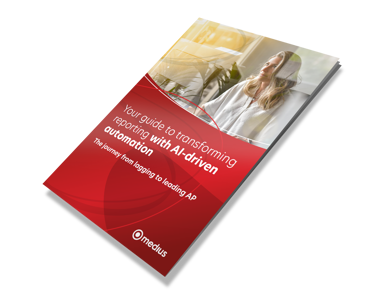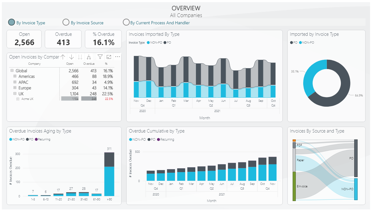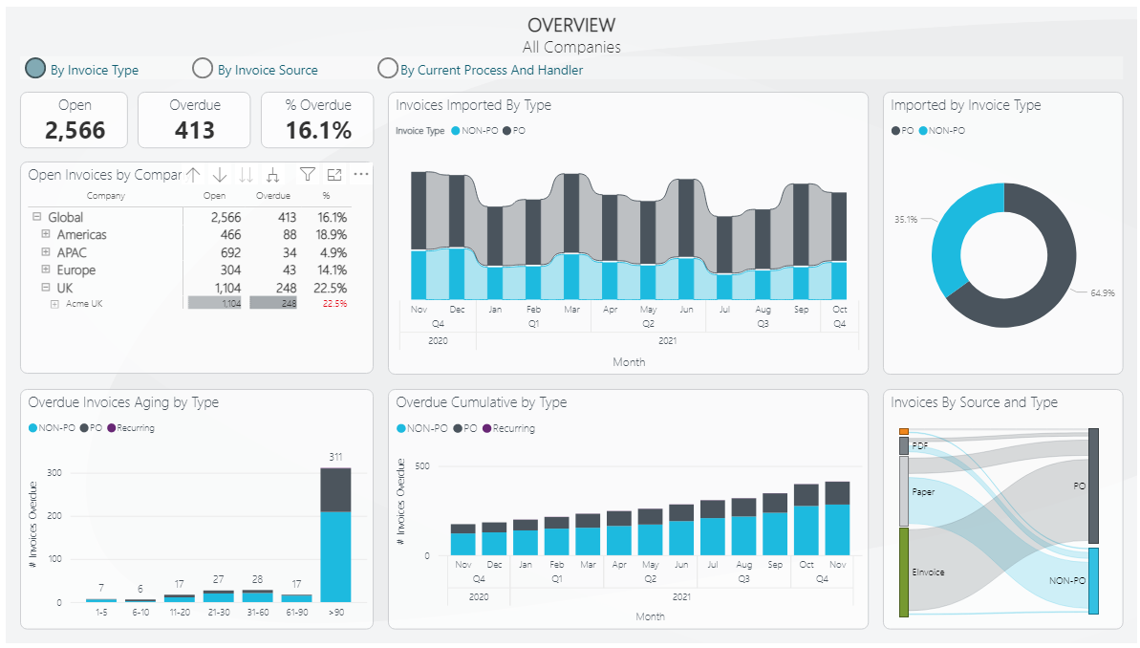Whats slowing down your month-end close and how AP automation can fix it
Month-end close remains one of the most demanding and time-sensitive processes for finance teams. Yet, instead of being a structured wrap-up, it often turns into a scramble caused by invoice backlogs, manual reconciliation, delayed approvals, and a lack of visibility across departments. These bottlenecks not only slow down reporting but also introduce unnecessary risk and pressure that finance professionals must manage under strict deadlines.

Traditional processes often involve disconnected spreadsheets, email follow-ups, and manual tracking. These methods are difficult to scale, prone to human error, and unable to provide real-time insights. As companies grow, the limitations of these outdated practices become even more apparent, leading to increased audit risk, delayed payments, and strained vendor relationships.
Finance leaders are increasingly turning to AP automation to remove friction from the close process. By streamlining workflows, enforcing approval timelines, and improving data integrity through tight ERP integration, automation helps teams close faster and with more confidence. Medius gives finance teams the tools they need to shift from reactive month-end chaos to proactive, controlled, and strategic financial operations. Month-end automation allows finance professionals to take charge of the process, reduce stress, and deliver results that leadership can trust.
Common obstacles slowing down close cycles
Finance teams face many of the same hurdles each month. These issues are especially prevalent in companies still relying on manual workflows or disconnected systems. Let’s break down the most persistent pain points.
Many organizations still process invoices manually. These documents come in through email, PDFs, supplier portals, or even physical mail. Without automation, accounts payable teams must enter and validate each invoice by hand checking for PO matches, coding expenses, and routing them for approval. This process is slow, error-prone, and difficult to scale, particularly when invoice volumes surge at the end of the month.
As the month-end approaches, these backlogs grow and put teams in a reactive state, forcing them to rush through validations or miss deadlines entirely. Even small delays early in the process can cascade into major disruptions when it’s time to close the books.
Matching invoices to purchase orders and receipts across multiple systems often involves spreadsheets, emails, and human judgment. If something doesn’t match like a wrong quantity, pricing error, or missing PO number, the finance team must investigate the discrepancy. This means reaching out to procurement, chasing documents, or manually correcting records.
Without automation, this step remains one of the biggest sources of close-cycle friction. It also increases the risk of reporting inaccuracies and delays in detecting fraud or duplicate payments.
Finance, procurement, and operations often work in silos. When data is fragmented or stored in different systems, tracking invoice status or accessing the right documentation becomes a major hurdle. If an invoice has been submitted but not approved, or a PO hasn’t been properly recorded, the AP team may not even know where to start looking.
This slows the ability to approve, match, and record transactions before close. It also increases frustration across teams, as communication becomes reactive and disconnected.
One of the most common reasons for month-end slowdowns is invoice approvals. Without workflow automation, invoices can sit idle waiting for action. AP staff often have to manually remind approvers or escalate the issue, pulling time and energy away from more strategic tasks.
In many cases, approvers may not even realize an invoice is waiting for them, especially if they're traveling, overloaded, or juggling competing priorities. This leads to bottlenecks that can bring the entire close process to a halt.
Without modern systems, finance teams rely on outdated reports or incomplete views of financial data. When you’re closing the books, real-time insight is crucial. Teams need to know what’s approved, what’s pending, and what still needs to be matched or posted.
Without it, issues are identified too late in the process. Teams are left reacting to problems instead of avoiding them altogether. Static reporting also limits the ability to forecast accurately or deliver insights that leadership can trust.
Your guide to smarter KPIs and streamlined month-end
When reporting takes days, closing the books drags on. “Your guide to transforming reporting with AI-driven automation” shows how real-time AP analytics help finance teams speed up reconciliations, reduce manual work, and get to month-end close with confidence.
How automation transforms the close process
AP automation platforms like Medius provide a complete, integrated workflow from invoice receipt to approval and posting. Each step is built to improve speed, accuracy, and traceability so finance teams can close the books with confidence.
Intelligent document processing
Medius uses intelligent capture technology to extract key data from invoices of any format. This reduces the need for manual entry and improves accuracy from the start. Information such as supplier names, amounts, due dates, and PO numbers is captured automatically.
This level of automation prevents backlogs from building up and ensures that invoices are processed quickly. Finance teams can spend less time correcting errors and more time on analysis and planning.
Automated workflows and approvals
Automation ensures that invoices are routed to the correct approver based on pre-defined business rules. If a delay occurs, the system automatically escalates the invoice and sends notifications to the appropriate team members.
Finance no longer needs to chase down approvals. The workflow moves forward reliably, and approvers are guided to take timely action. This consistency leads to fewer delays and a more predictable close.
Reliable ERP integration
Medius integrates directly with leading ERP systems such as Microsoft Dynamics, SAP, and Oracle. This tight integration allows validated invoice data to flow into the financial system without duplicate entry or errors.
By ensuring that your ERP reflects the most accurate and current data, automation reduces reconciliation work and strengthens the reliability of financial reports. Finance teams benefit from cleaner data and faster access to critical information.
More control, less pressure
Medius provides complete traceability for every invoice, approval, and exception. This supports compliance requirements and audit readiness by maintaining a clear and searchable record of all transactions.
Automation also eases the workload on staff. Instead of working late to track approvals or enter data, team members can focus on strategic tasks. This shift helps retain talent and improve the finance function’s overall performance, while also highlighting the broader benefits of AP automation for both efficiency and employee satisfaction.
Enabling stronger strategic planning
When close cycles are faster and data is accurate, finance becomes a more strategic partner in the organization. Treasury gains a clear understanding of liabilities and can manage cash flow more effectively. Procurement can use performance data to renegotiate supplier contracts. Leadership receives reliable financial information and can make informed decisions with confidence.
AP analytics also plays a vital role by uncovering trends, identifying bottlenecks, and providing insights that help teams optimize spend, improve vendor performance, and drive continuous improvement across financial operations. These analytics capabilities transform raw transaction data into actionable intelligence that supports planning and forecasting.
These outcomes demonstrate that AP automation is not just about efficiency. It enables the finance function to support long-term goals, adapt quickly to change, and deliver value beyond traditional reporting. A streamlined AP process reduces risk, improves planning, and makes the entire organization more resilient.
Take control of your close with Medius
Medius empowers finance teams to manage the close process with greater clarity and control. With intelligent invoice capture, real-time visibility, and seamless ERP integration, every part of the workflow supports faster, more accurate reporting. Delays are reduced, compliance is strengthened, and teams can focus on what matters most.
Looking to reduce risk, save time, or improve decision-making? Medius AP Automation delivers the capabilities to make it happen.
Ready to streamline your next month-end close?
Book a demo today to see how we help finance teams close faster, smarter, and with less stress.








